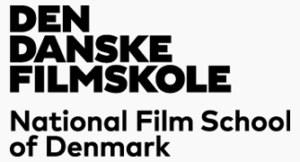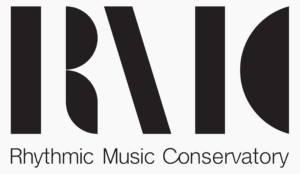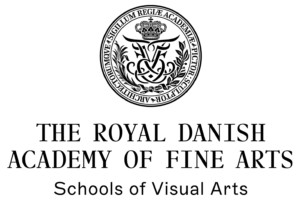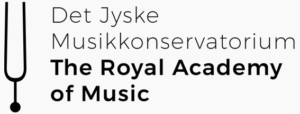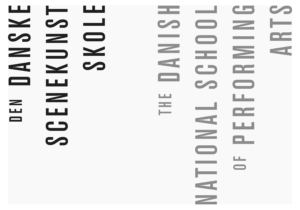Artistic Research
The main field of work in the International Center for Knowledge in the Arts is Artistic Research (referred to in Danish as ‘KUV’), which plays an important role in the knowledge base of higher artistic education, and which is all about garnering knowledge through artistic practice. On the basis of clearly defined projects, Artistic Research enables teachers not only to develop further and reflect on their own artistic practice and the processes that go into the production of new works, but also to investigate and develop new approaches and methods within artistic practice. The projects generally generate knowledge of artistic practice in the shape of innovative productions, teaching methods, artistic methodology, written reflections, studies of technology and materials, and pedagogical considerations (Pedagogical Development Activities – referred to in Danish as ‘PUV’). Knowledge sharing is, therefore, an important part of Artistic Research, and the Center supports it through a joint project archive, publications, Artistic Research forums and interdisciplinary programme activities.
Knowledge Building and Knowledge Sharing
In terms of knowledge building and knowledge sharing through artistic insights, the results of Artistic Research are often diverse and specific to the various artistic disciplines. Artistic Research projects are subject to flexible requirements for documentation and reflection on the process and the artistic result. This ensures continuous development of the knowledge base for artistic education on a par with the knowledge building that research represents in universities. In other words, Artistic Research can be compared to regular research. However, it differs from knowledge building in the fields of natural sciences, social sciences or cultural studies. It is knowledge-producing action in and through artistic practice.
In Denmark the English term ‘Artistic Research’ was selected as a translation for KUV (Artistic Development Activity), thereby allying the field with the international development that has taken place in the field of artistic research over the past 30 years, as a special branch of practice-based research carried out by artists. It differs from ‘pure’ artistic practice in that methodology, reflection and knowledge-sharing plays a greater role. However, in Denmark no progression has yet been established from BA/BFA and MA/MFA programmes to the so-called ‘third cycle’: PhD degrees in the field of practice-based art research. Still, as a practice-based field of knowledge, Artistic Research can use art’s aesthetic and performative modus operandi to enhance and challenge scholarly perspectives and to probe current societal issues.
Innovation, Contemplation, Sustainability
The International Center for Knowledge in the Arts has a comprehensive view of the forms Artistic Research can take, and respect for different artistic traditions. In addition to our work on quality assurance within the field, we would like to highlight three aspects of how Artistic Research contributes to the development of artistic practice on the basis of Innovation, Contemplation and Sustainability.
- Innovation. Artistic Research paves the way for artistic experimentation, in which new techniques and methods are developed and tested, both within the specific artistic discipline and often across disciplines, in dialogue with other fields of knowledge and current technological and societal developments.
- Contemplation. Any practitioner is free to formulate the framework of the final output: for example, a new work and/or new knowledge in the shape of artistic working methods that are not dictated in advance by a specific commercial or institutional way of producing.
- Sustainability. Artistic practice is enhanced on the basis of the documentation/reflection required of Artistic Research projects, and by providing artists with tools both to develop and to share their artistic knowledge. This creates not only future career opportunities in and beyond professional boundaries, but also a transparency in artistic practice, making it easier for other professional groups to interact with it.
The Artistic Research Funding Programme
The International Center for Knowledge in the Arts coordinates and administers the Artistic Research Funding Programme – the funds allocated by Ministry of Culture Denmark for Artistic Research. Institutions of higher education that operate under the aegis of Ministry of Culture Denmark and are financed mainly by the ministry, can apply for funding. The project manager must be permanently attached to the institution that is making the application. The purpose of the Artistic Research Funding Programme is to enhance Artistic Research initiatives in the various disciplins, and to enrich the knowledge base of the institutions.
See application procedure and guidelines
More information about Artistic Research
In a report in 2012, a committee appointed by the cultural ministry formulated a short definition of Artistic Research as: “An integral part of an artistic process that leads to a publicly available result and is accompanied by reflection on both the process and the presentation of the result.” You can read the full report here (in Danish).
You can find examples of Artistic Research projects from the higher education programmes under the menu item ‘Archive’ on this page. The archive is expanded on an on-going basis.
Under the menu item ‘Network’ (above), you can find additional national and international resources within the field of Artistic Research.
Each of the various artistic educational programmes has developed its own, discipline-based strategies for managing Artistic Research as part of their knowledge base. Below, you can read more about the strategies of the individual schools.
- The Royal Danish Academy of Music: Artistic Research
- The Rhythmic Music Conservatory: Research and development
- The Royal Danish Academy of Fine Arts: About research
- The Royal Academy of Music Aarhus/Aalborg: Research and Development
- The Danish National School of Performing Arts: Artistic Research
- Danish National Academy of Music: Research and Development
- The National Film School of Denmark: Kunstnerisk udviklingsvirksomhed (Only in Danish)
